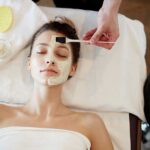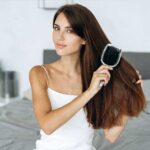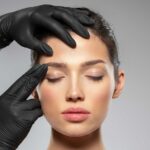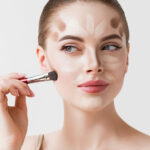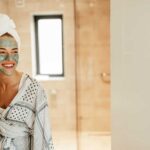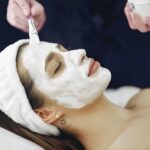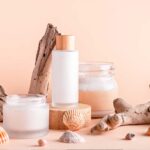To some, acne may feel like a minor blemish on the overall face of life. However, if you’re in the thick of it, acne can impact your confidence and wellbeing—especially in adolescence. Acne can make us feel insecure about our appearance, which can deter us from being social and making connections. When we avoid social situations, we isolate ourselves and ultimately make our self-esteem issues even worse.
For the above reasons, it’s important to never underestimate the impact of acne. If you’re struggling with how your acne looks or feels, it’s okay to take healthy steps towards getting rid of it. While there are no instant or surefire ways to eradicate acne altogether, there are plenty of methods you can take to minimise your acne. So, without further ado, let’s break down the good, the bad and the ugly about all things breakouts.
What Is Acne?
Often appearing for the first time during puberty, acne is a medical problem that causes outbreaks of blackheads, pimples and cysts. It’s caused by inflammation of the hair follicles and most commonly affects the face, back and chest. Acne is often triggered by hormones associated with puberty and the menstrual cycle, but it can be provoked by other, more controllable factors as well. If you experience acne during your teenage years, it will probably subside significantly after 8–10 years. In some cases, however, it can persist until your 30s or 40s. In severe cases of acne, the skin condition can also lead to permanent scarring.
5 Tips on How To Reduce Acne
1. Use the Correct Cleanser
Washing your face regularly is crucial for maintaining healthy and happy skin. In order to clean your face properly, you’ll need a good cleanser. Try washing the affected areas twice per day with cleansers that are specifically made for acne-prone skin. Be careful not to overdo it though. Too much cleansing can cause other skin problems such as dryness or irritation. If you use makeup, make sure to remove it thoroughly before cleansing and going to bed. It’s also worth remembering that your makeup should only include water-based, oil-free products where possible.
2. Avoid Touching
It can be really tempting to touch your acne or pop your pimples, but this is never a good idea. Touching your acne sores will irritate the skin and potentially make the pimples worse. This action introduces more bacteria into the lesion, which can spread that bacteria to other places. Squishing a pimple can also push bacteria and debris further into the skin, meaning the spot may come back worse than it was before. If you have an especially large sore—or a sore deep under the skin—you may need to talk to a doctor or dermatologist about how to treat them safely.
3. Tea Tree Oil
Tea tree oil is a natural antibacterial and anti-inflammatory, which gives it many abilities. Firstly, it can actually kill the bacteria that causes acne, as well as reduce both the redness and swelling that often accompanies acne. Research shows that tea tree oil products can reduce the number of acne sores in people because of tea trees’ antimicrobial capabilities. People can apply tea tree extract to their acne in creams, gels, or essential oils, but it may take 12 weeks to produce noticeable results.
4. Aloe Vera
Like tea tree oil, aloe vera is a natural antibacterial and anti-inflammatory, meaning it may reduce the appearance of acne and prevent acne breakouts. It also contains sugar molecules, amino acids and zinc, which makes it a great moisturiser and protectant. When combined with soft mask applications, aloe vera lowers the number of bumps and lesions and reduces the prevalence of dry skin. To use aloe vera, clean your acne sores with soap twice daily before applying a thin layer of cream or gel. Note that if you tend to get dry skin from other anti-acne products, aloe vera may be an especially great solution for you.
5. Medical Treatments
Depending on the severity of your acne, you may want to seek medical treatment to reduce its effect on your skin. There are a few medical treatments you could try. Retinoids, for example, unblock pores of existing pimples and prevent new blockages from developing. Antibodies work by killing bacteria and reducing inflammation. Hormonal agents, such as the contraceptive pill, can also be a good option for reducing the amount of androgen in the body. By reducing androgen levels, the pill can also reduce oil secretion in your skin, thereby minimising acne breakouts.
Don’t Let Acne Stop You!
When it comes to minimising acne, different techniques will work for different people. Once you begin implementing a new technique, you may have to wait a while before you notice results. You might also have to experiment quite a bit before finding the right solution for your skin. In the meantime, remember that your acne is more obvious to you than it is to others. Try not to let blemishes stop you from being your confident, beautiful self—you are much more than your skin!







